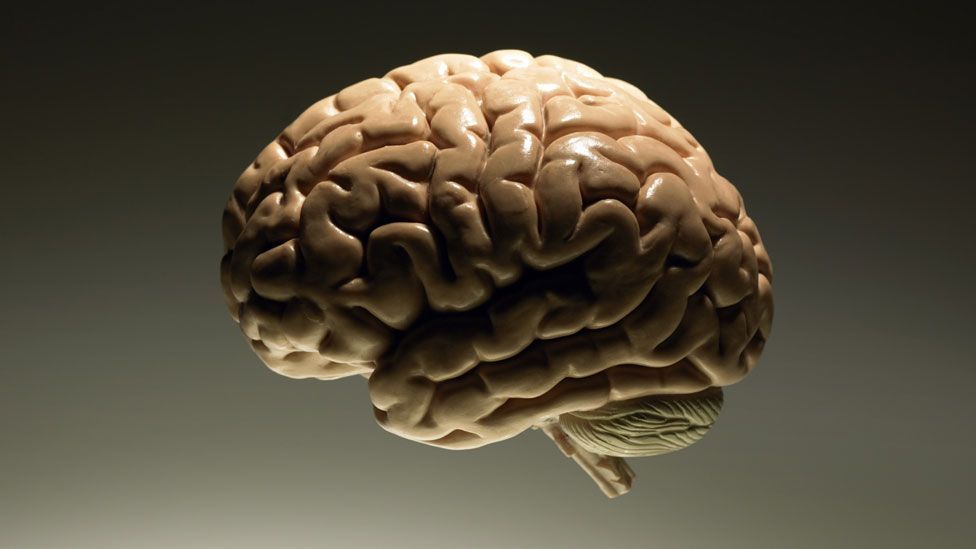There Are People Who Transiotened and Destransitioned Again
The surprising downsides of existence clever
(Epitome credit:
Getty Images
)

Tin can high intelligence exist a brunt rather than a boon? David Robson investigates.
Best of 2015
Our top stories
If ignorance is bliss, does a high IQ equal misery? Popular opinion would have it and so. Nosotros tend to call up of geniuses as beingness plagued by existential malaise, frustration, and loneliness. Retrieve of Virginia Woolf, Alan Turing, or Lisa Simpson – lone stars, isolated even equally they burn their brightest. As Ernest Hemingway wrote: "Happiness in intelligent people is the rarest thing I know."
The question may seem like a trivial matter concerning a select few – but the insights information technology offers could have ramifications for many. Much of our instruction system is aimed at improving academic intelligence; although its limits are well known, IQ is still the primary way of measuring cognitive abilities, and nosotros spend millions on encephalon preparation and cerebral enhancers that try to improve those scores. Only what if the quest for genius is itself a fool'due south errand?

Anxiety can be mutual amid the highly intelligent (Credit: Thinkstock)
The first steps to answering these questions were taken almost a century ago, at the height of the American Jazz Age. At the fourth dimension, the new-fangled IQ test was gaining traction, after proving itself in Earth War I recruitment centres, and in 1926, psychologist Lewis Terman decided to use it to place and study a group of gifted children. Combing California's schools for the creme de la creme, he selected 1,500 pupils with an IQ of 140 or more than – 80 of whom had IQs above 170. Together, they became known every bit the "Termites", and the highs and lows of their lives are still existence studied to this day.
As you might expect, many of the Termites did achieve wealth and fame – most notably Jess Oppenheimer, the writer of the classic 1950s sitcom I Beloved Lucy. Indeed, by the time his series aired on CBS, the Termites' average salary was twice that of the boilerplate white-collar chore. Only not all the group met Terman's expectations – there were many who pursued more "apprehensive" professions such as police officers, seafarers, and typists. For this reason, Terman ended that "intellect and achievement are far from perfectly correlated". Nor did their smarts endow personal happiness. Over the class of their lives, levels of divorce, alcoholism and suicide were about the same as the national average.

Information technology's lone being smart (Credit: Thinkstock)
As the Termites enter their dotage, the moral of their story – that intelligence does not equate to a better life – has been told again and again. At best, a bang-up intellect makes no differences to your life satisfaction; at worst, it can actually hateful yous are less fulfilled.
That'south not to say that everyone with a high IQ is a tortured genius, as popular civilisation might suggest – but it is still puzzling. Why don't the benefits of sharper intelligence pay off in the long term?
A weighty burden
One possibility is that knowledge of your talents becomes something of a ball and chain. Indeed, during the 1990s, the surviving Termites were asked to await back at the events in their 80-yr lifespan. Rather than basking in their successes, many reported that they had been plagued by the sense that they had somehow failed to live upwardly to their youthful expectations.

Early achievers don't e'er go on to be successful (Credit: Thinkstock)
That sense of brunt – particularly when combined with others' expectations – is a recurring motif for many other gifted children. The near notable, and sad, case concerns the maths prodigy Sufiah Yusof. Enrolled at Oxford University aged 12, she dropped out of her course before taking her finals and started waitressing. She later worked as a call daughter.
Another common complaint, often heard in student bars and internet forums, is that smarter people somehow have a clearer vision of the world's failings. Whereas the rest of usa are blinkered from existential malaise, smarter people lay awake agonising over the human condition or other people'southward folly.
Abiding worrying may, in fact, be a sign of intelligence – but not in the way these armchair philosophers had imagined. Interviewing students on campus nearly various topics of discussion, Alexander Penney at MacEwan University in Canada found that those with the higher IQ did indeed experience more anxiety throughout the 24-hour interval. Interestingly, most worries were mundane, day-to-twenty-four hour period concerns, though; the loftier-IQ students were far more likely to be replaying an awkward chat, than asking the "big questions". "Information technology'south not that their worries were more than profound, merely they are just worrying more often nearly more things," says Penney. "If something negative happened, they thought about information technology more."

Probing more deeply, Penney constitute that this seemed to correlate with verbal intelligence – the kind tested by word games in IQ tests, compared to prowess at spatial puzzles (which, in fact, seemed to reduce the risk of anxiety). He speculates that greater eloquence might also make y'all more likely to verbalise anxieties and ruminate over them. It'southward not necessarily a disadvantage, though. "Possibly they were problem-solving a bit more than almost people," he says – which might help them to learn from their mistakes.
Mental blind spots
The harsh truth, however, is that greater intelligence does not equate to wiser decisions; in fact, in some cases it might make your choices a little more foolish. Keith Stanovich at the Academy of Toronto has spent the terminal decade edifice tests for rationality, and he has found that fair, unbiased decision-making is largely independent of IQ. Consider the "my-side bias" – our tendency to be highly selective in the information we collect then that it reinforces our previous attitudes. The more than enlightened approach would be to leave your assumptions at the door every bit you build your argument – but Stanovich institute that smarter people are almost no more than likely to practice so than people with distinctly average IQs.

Members of loftier IQ guild Mensa are not immune to belief in the paranormal (Credit: Thinkstock)
A tendency to rely on gut instincts rather than rational thought might also explicate why a surprisingly loftier number of Mensa members believe in the paranormal; or why someone with an IQ of 140 is about twice every bit likely to max out their credit card.
Indeed, Stanovich sees these biases in every strata of society. "At that place is plenty of dysrationalia – people doing irrational things despite more than than adequate intelligence – in our world today," he says. "The people pushing the anti-vaccination meme on parents and spreading misinformation on websites are generally of more than than average intelligence and education." Clearly, clever people can exist dangerously, and foolishly, misguided.

People with an IQ above 140 are twice every bit likely to overspend on their credit carte (Credit: Thinkstock)
And so if intelligence doesn't lead to rational decisions and a better life, what does? Igor Grossmann, at the University of Waterloo in Canada, thinks we need to turn our minds to an historic period-old concept: "wisdom". His approach is more scientific that it might at kickoff audio. "The concept of wisdom has an ethereal quality to information technology," he admits. "But if yous await at the lay definition of wisdom, many people would agree information technology'southward the thought of someone who can make practiced unbiased judgement."
In one experiment, Grossmann presented his volunteers with different social dilemmas – ranging from what to practice most the war in Crimea to heartfelt crises disclosed to Dear Abby, the Washington Post's desperation aunt. As the volunteers talked, a console of psychologists judged their reasoning and weakness to bias: whether it was a rounded argument, whether the candidates were ready to admit the limits of their knowledge – their "intellectual humility" – and whether they were ignoring important details that didn't fit their theory.

High achievers tend to lament opportunities missed in their lives (Credit: Thinkstock)
High scores turned out to predict greater life satisfaction, relationship quality, and, crucially, reduced anxiety and rumination – all the qualities that seem to be absent in classically smart people. Wiser reasoning even seemed to ensure a longer life – those with the higher scores were less likely to die over intervening years. Crucially, Grossmann found that IQ was not related to whatever of these measures, and certainly didn't predict greater wisdom. "People who are very precipitous may generate, very quickly, arguments [for] why their claims are the correct ones – simply may do it in a very biased fashion."
Learnt wisdom
In the future, employers may well begin to start testing these abilities in place of IQ; Google has already announced that it plans to screen candidates for qualities similar intellectual humility, rather than sheer cerebral prowess.
Fortunately, wisdom is probably not set up in stone – whatever your IQ score. "I'm a stiff laic that wisdom can be trained," says Grossmann. He points out that nosotros often find it easier to leave our biases backside when we consider other people, rather than ourselves. Along these lines, he has found that simply talking through your problems in the third person ("he" or "she", rather than "I") helps create the necessary emotional distance, reducing your prejudices and leading to wiser arguments. Hopefully, more inquiry volition propose many similar tricks.
The challenge will exist getting people to admit their own foibles. If you've been able to rest on the laurels of your intelligence all your life, it could be very hard to accept that it has been blinding your sentence. Equally Socrates had information technology: the wisest person really may be the one who can admit he knows nil.
Share this story on Facebook , Google+ or Twitter .
Read more than:

Source: https://www.bbc.com/future/article/20150413-the-downsides-of-being-clever
0 Response to "There Are People Who Transiotened and Destransitioned Again"
Post a Comment